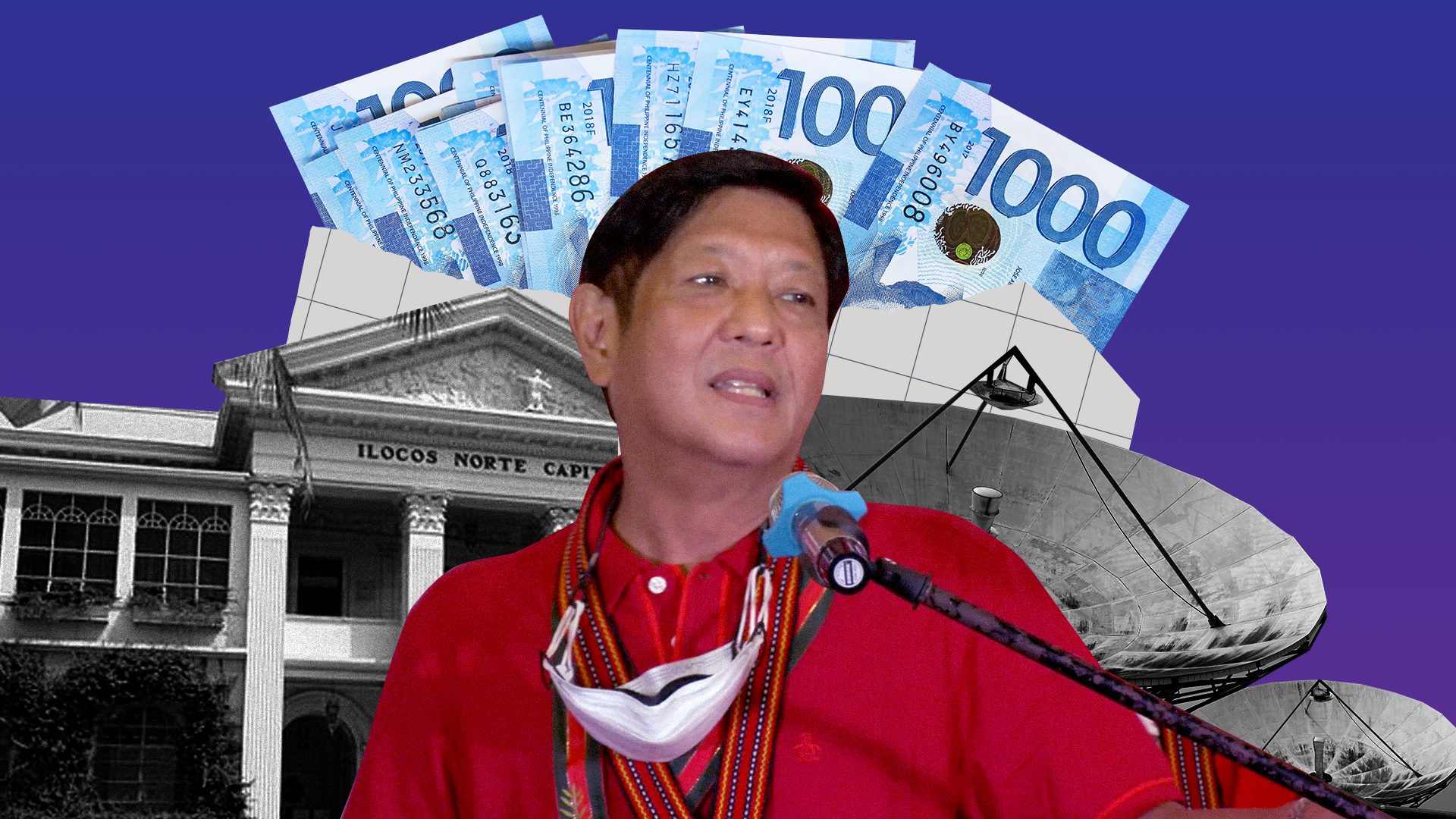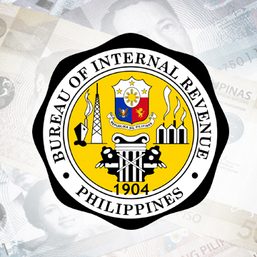SUMMARY
This is AI generated summarization, which may have errors. For context, always refer to the full article.

In the Memorandum of December 17, 2021 that he submitted to the Second Division of the Commission on Elections, Ferdinand R. Marcos Jr. claims that the law requiring the filing of income tax returns (ITRs) has been repealed by the 2018 TRAIN Law insofar as employees receiving purely compensation income are concerned. In short, Marcos Jr. asserts that under the TRAIN Law, those receiving purely compensation income, who are already subject to withholding tax at source, are no longer required to final an ITR after the end of the calendar year.
Specifically, Marcos Jr. cites Section 51-A of the Tax Code, as amended by the TRAIN Law, which provides:
SEC. 51-A. Substituted Filing of Income Tax Returns by Employees Receiving Purely Compensation Income. – Individual taxpayers receiving purely compensation income, regardless of amount, from only one employer in the Philippines for the calendar year, the income tax of which has been withheld correctly by the said employer (tax due equals tax withheld) shall not be required to file an annual income tax return. The certificate of withholding filed by the respective employers, duly stamped “received” by the BIR, shall be tantamount to the substituted filing of income tax returns by said employees.
Marcos Jr. thus concludes in his Memorandum, “It therefore follows that the non-filing of annual income tax returns by pure compensation income earners is no longer punishable under the 1997 NIRC, as amended by TRAIN.”
Marcos Jr. now invokes Article 22 of the Revised Penal Code, which expressly states that the repeal of a criminal law shall have retroactive effect if favorable to the accused or convict. Thus, Marcos Jr. claims that the repeal under the TRAIN law should be made to retroact to the years 1982 to 1985 when he failed to file his ITRs and for which he was convicted by the courts. The effect of such retroactivity would be to extinguish his crime and its penalties.
There is, however, a fatal flaw in this defense of Marcos Jr. The non-requirement of filing an ITR under Section 51-A of the Tax Code expressly refers to a situation where the employee has “only one employer in the Philippines for the calendar year.” This is further made very clear in Section 51-A(2)(b): “The following individuals shall not be required to file an income tax return: xxx An individual with respect to pure compensation income, as defined in Section 32(A)(1), derived from such sources within the Philippines, the income tax on which has been correctly withheld under the provisions of Section 79 of this Code: Provided, That an individual deriving compensation concurrently from two or more employers at any time during the taxable year shall file an income tax return; xxx.”
Thus, if an employee has two or more employers at any time during the calendar year, he must still file his ITR at the end of the calendar year. From 1982 to 1985 Marcos Jr. was an employee of the provincial government of Ilocos Norte, first as vice governor and later in 1985 as governor. However, the records of the Securities and Exchange Commission reveal that Marcos Jr. served, starting in early 1985, as chairman of the Board of Directors of the Philippine Communications Satellite Corporation or Philcomsat. As chairman of Philcomsat, Marcos Jr. drew a salary. Marcos Jr. had in fact two employers in 1985, making Section 51-A of the Tax Code clearly inapplicable to him. Hence, Marcos Jr. cannot invoke Article 22 of the Revised Penal Code since Section 51-A of the Tax Code does not apply to him.
For calendar year 1985 Marcos Jr., being both a public and a private employee, was still required under the law to file his ITR. His failure to do so was a criminal violation of the Tax Code. Section 253(c) of the Tax Code provides that if the offender is “a public officer or employee, the maximum penalty prescribed for the offense shall be imposed and, in addition, he shall be dismissed from the public service and perpetually disqualified from holding any public office, to vote and to participate in any election.” – Rappler.com
Add a comment
How does this make you feel?
![[WATCH] In The Public Square with John Nery: Preloaded elections?](https://www.rappler.com/tachyon/2023/04/In-the-Public-Square-LS-SQ.jpg?resize=257%2C257&crop=414px%2C0px%2C1080px%2C1080px)
![[Newspoint] 19 million reasons](https://www.rappler.com/tachyon/2022/12/Newspoint-19-million-reasons-December-31-2022.jpg?resize=257%2C257&crop=181px%2C0px%2C900px%2C900px)

![[OPINION] The long revolution: Voices from the ground](https://www.rappler.com/tachyon/2022/06/Long-revolution-June-30-2022.jpg?resize=257%2C257&crop=239px%2C0px%2C720px%2C720px)
![[OPINION] I was called a ‘terrorist supporter’ while observing the Philippine elections](https://www.rappler.com/tachyon/2022/06/RT-poster-blurred.jpeg?resize=257%2C257&crop_strategy=attention)




![[New School] Tama na kayo](https://www.rappler.com/tachyon/2024/02/new-school-tama-na-kayo-feb-6-2024.jpg?resize=257%2C257&crop=290px%2C0px%2C720px%2C720px)





![[In This Economy] Marcos’ POGO ban is popular, but will it work?](https://www.rappler.com/tachyon/2024/07/thought-leaders-marcos-pogo-ban.jpg?resize=257%2C257&crop=255px%2C0px%2C720px%2C720px)
![[Rappler Investigates] POGOs no-go as Typhoon Carina exits](https://www.rappler.com/tachyon/2024/07/newsletter-graphics-carina-pogo.jpg?resize=257%2C257&crop=424px%2C0px%2C1080px%2C1080px)




![[Ask The Tax Whiz] Output VAT credit on uncollected receivables: What taxpayers must know](https://www.rappler.com/tachyon/2022/11/tax-papers-hand-shutterstock.jpg?resize=257%2C257&crop_strategy=attention)
![[Ask The Tax Whiz] What’s new on invoicing requirements under the Ease of Paying Taxes law?](https://www.rappler.com/tachyon/2024/06/tax-whiz-receipts.jpg?resize=257%2C257&crop=459px%2C0px%2C720px%2C720px)

![[Ask the Tax Whiz] Withholding tax under Ease of Paying Taxes law](https://www.rappler.com/tachyon/2022/11/tax-papers-shutterstock.jpg?resize=257%2C257&crop=205px%2C0px%2C900px%2C900px)
There are no comments yet. Add your comment to start the conversation.